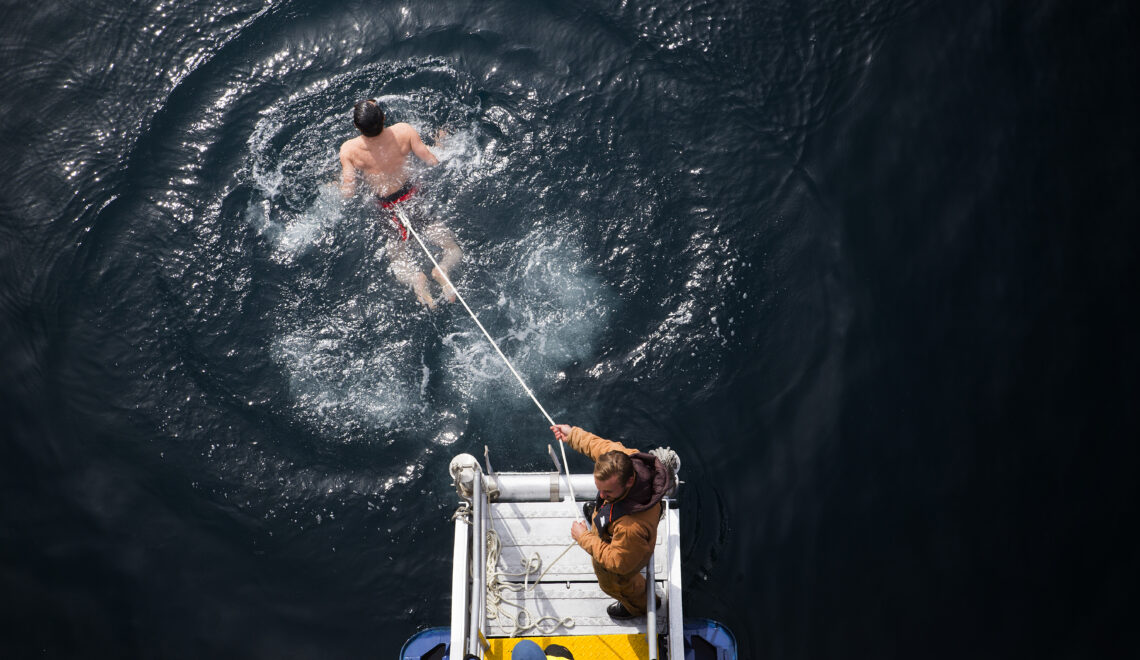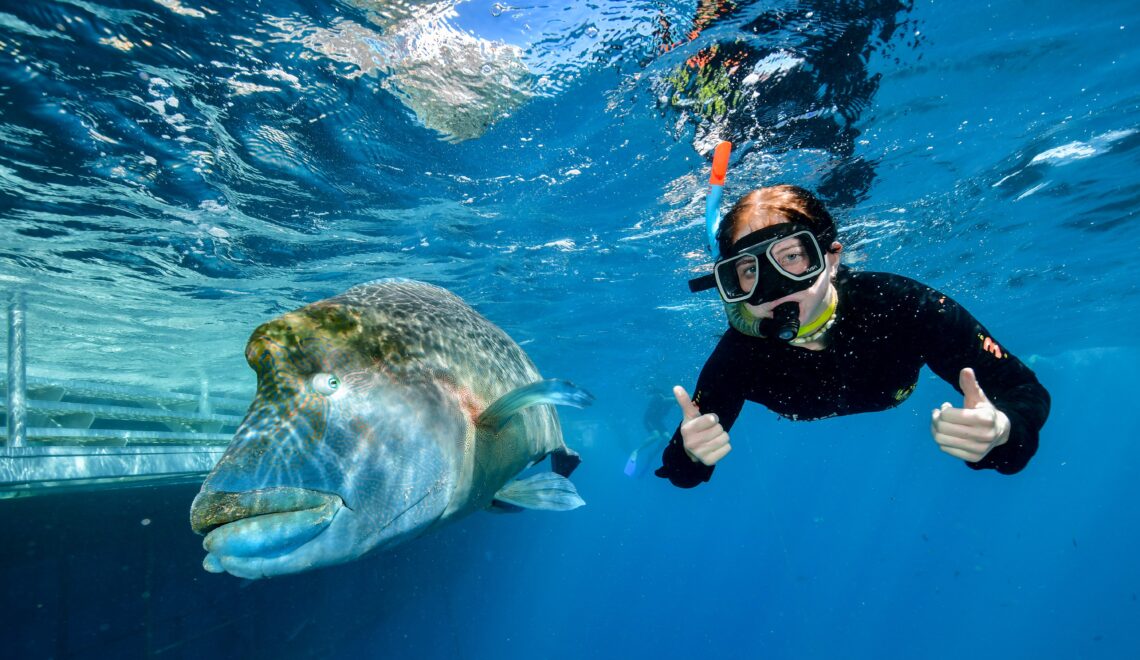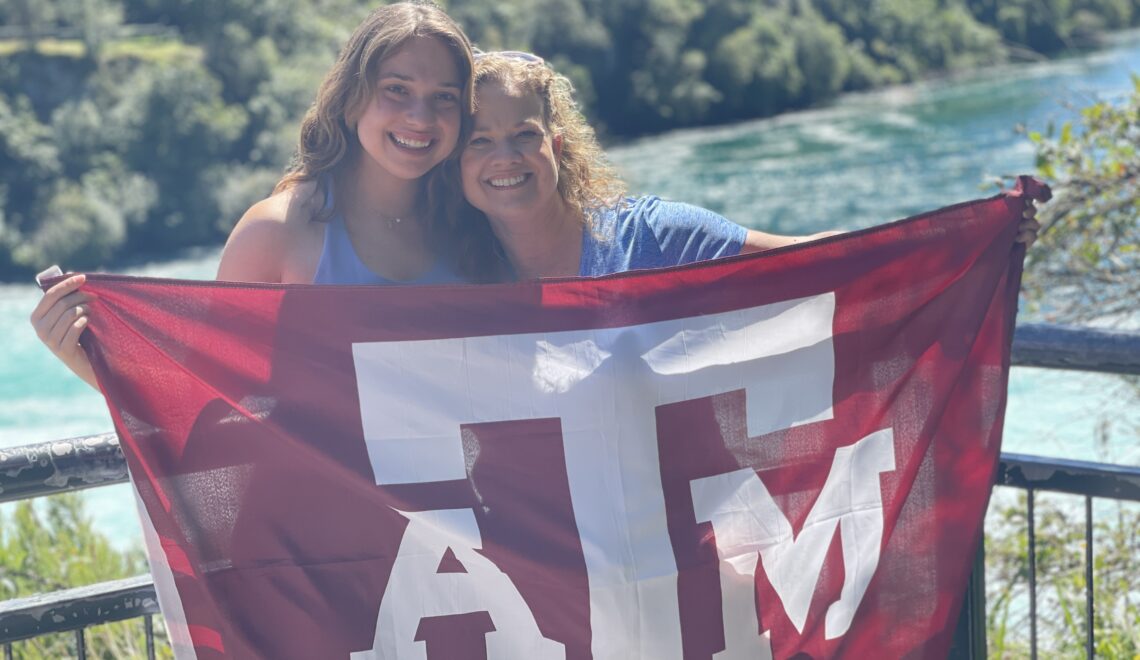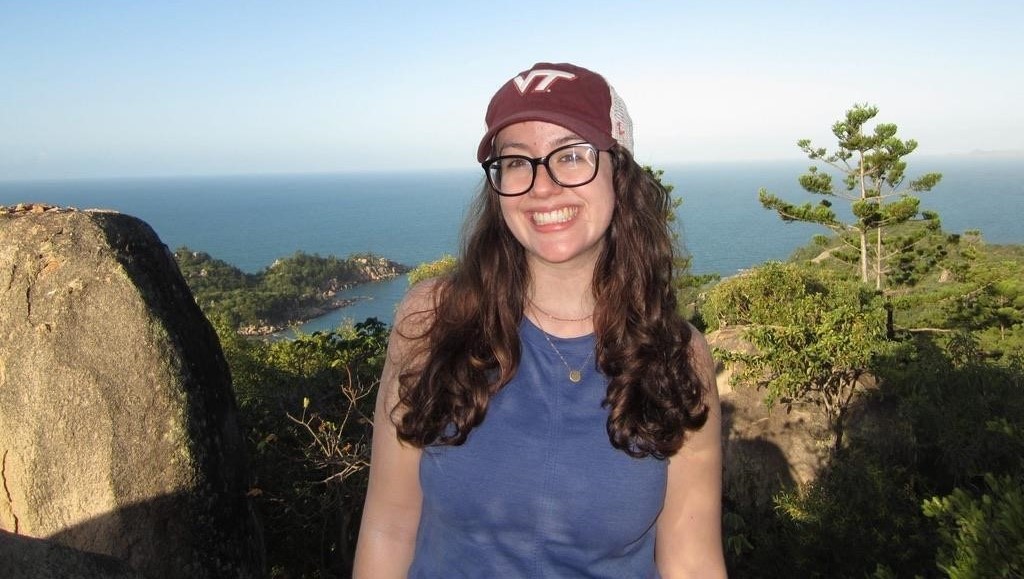
Ava talks about the experience of studying abroad in Australia in the summer of 2024. She writes:
Hi everyone! My name is Ava, and I am a current junior at Virginia Tech, majoring in wildlife conservation and minoring in GIS. I am passionate about all forms of conservation, and I am always eager to learn something new. My parents nurtured my love for science and exploration throughout my childhood, and I’m grateful to have found a home at Virginia Tech, where I can transform these passions into a future career.
I always knew I wanted to study abroad, but I was never sure where in the world I might end up. After our instructor, Dr. Bush, visited one of my classes sophomore year I was sold on the trip going to Australia. I was ready to take off on the adventure of a lifetime. As everyone says, studying abroad will change your life, and I am here to reaffirm that statement once again.
Studying Humans and the Environment in Australia was absolutely life-changing. My favorite and most memorable part of the program was the time we spent exploring and learning about the Great Barrier Reef. We participated in a citizen science project, setting up transect lines and counting coral species while snorkeling. This hands-on experience deepened my understanding of reef ecology and the importance of monitoring biodiversity to track ecosystem health. I also learned about the threats posed by climate change and coral bleaching, as well as the management practices in place to mitigate these issues.
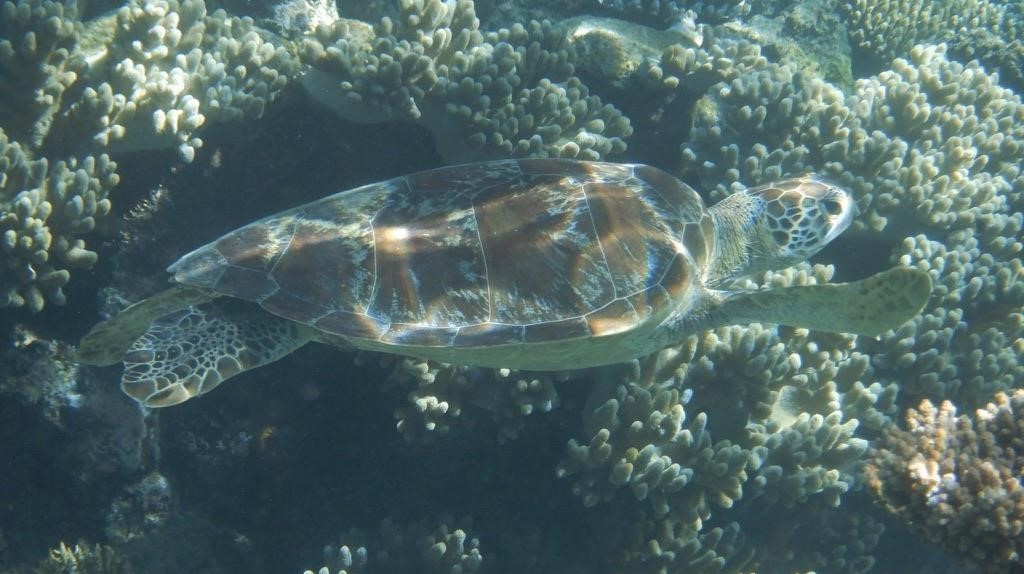
Green sea turtle on the Great Barrier Reef
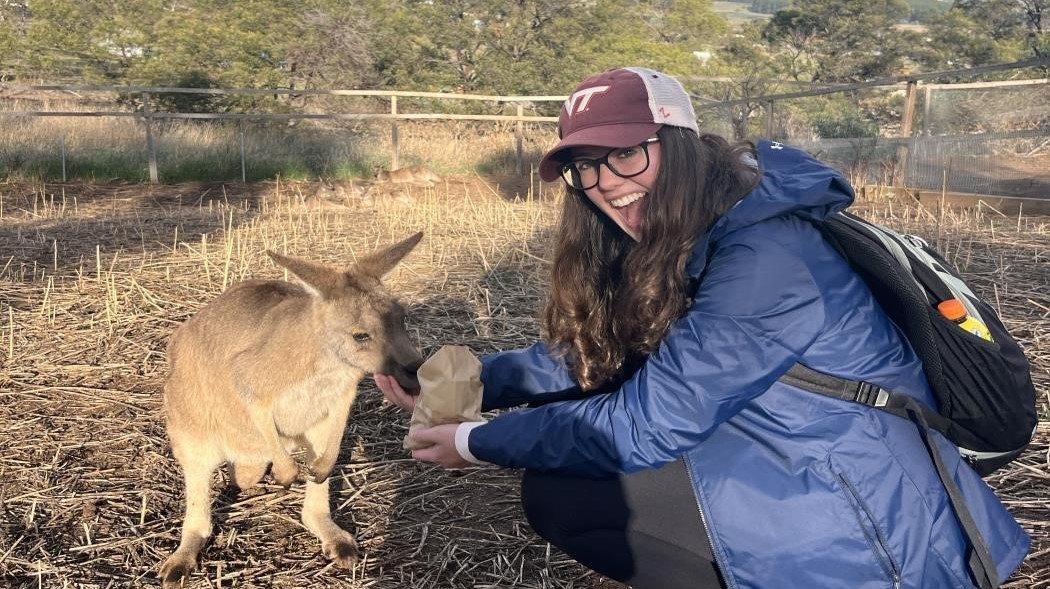
Ava with a kangaroo in Tasmania
Beyond the reef, we explored the oldest rainforest in the world and marveled at the ecological adaptations of its flora and fauna. In Tasmania, I learned about innovative conservation methods such as the use of controlled burns to manage forest health and reduce wildfire risks. Visiting the tallest waterfall in the southern hemisphere was another highlight, where I observed firsthand how natural landmarks can inspire both ecological conservation and cultural appreciation. These immersive experiences introduced me to the interconnectedness of ecosystems and human impact, leaving me profoundly inspired.
Learning about Australia’s conservation efforts was particularly impactful. The country’s approach to sustainable practices, such as protecting marine reserves and implementing land management strategies that incorporate Indigenous knowledge, gave me a new perspective on how conservation can be approached holistically. Witnessing these practices emphasized the need for greater sustainability initiatives in the U.S. I returned home with a renewed determination to work harder on promoting conservation and sustainability within my own community.
Studying abroad allowed me to apply what I learned in Australia to my academic and professional aspirations. Back at Virginia Tech, I’ve integrated these experiences into my studies, focusing on how to implement conservation strategies that balance ecological integrity with societal needs. The program’s emphasis on cultural sensitivity and interdisciplinary learning has shaped how I approach problem-solving and advocacy for environmental issues. The knowledge I gained abroad continues to inspire my commitment to advancing conservation efforts both locally and globally.
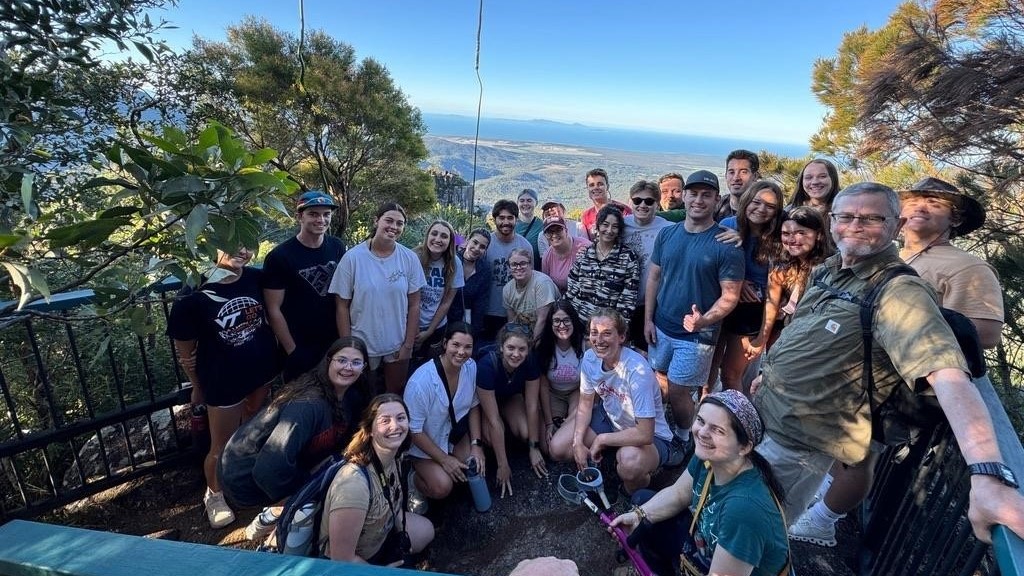
This program was a perfect match for me and my interests. The opportunity to learn and grow in Australia was not only educational but also profoundly inspiring. It reinforced my commitment to pursuing a career in fish and wildlife conservation, equipped with a richer understanding of ecological systems, cultural values, and sustainability practices. The lessons I learned will inform my future efforts to advocate for and implement conservation solutions in meaningful and culturally sensitive ways.

